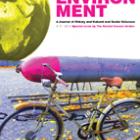Kalmbach, Karena. “Radiation and Borders: Chernobyl as a National and Transnational Site of Memory.” Global Environment 11 (2013): 130–59. Republished by the Environment & Society Portal, Multimedia Library. http://www.environmentandsociety.org/node/7583.
The public debate about the consequences of Chernobyl is of particular political relevance because each interpretation of the event also involves a judgment about the danger of low-level radiation exposure. Thus, statements about Chernobyl and its aftermath are also claims about what it should teach us about the nonmilitary use of nuclear energy. Commemorations of Chernobyl, such as those that occur on its anniversary, are therefore inherently political: the forms of language and the “facts” used to talk about it are an attempt to influence public perceptions about the risks connected with this type of electricity production. Furthermore, the narratives created by various participants in the Chernobyl debate demonstrate how different the perceptions of risk really are.
This essay starts with an overview of the accident and its evaluation. It subsequently examines different forms of remembering Chernobyl, from both a national and transnational perspective. It discusses national and transnational carriers of memories such as literature and photography, and elaborates on the implications of the contesting narratives interpreting Chernobyl in “apocalyptic” versus “radiophobic” ways. Furthermore, the essay sheds light on the implications of Chernobyl as a national site of memory in Germany, France, and Belarus. The comparative perspective reveals the importance of underlying structures such as national (nuclear) politics, elite and expert culture, environmentalism, and the role of individual agency. These factors condition the emergence of a specific narrative of the accident within a specific discursive field, and, furthermore, determine the meaning attributed to “Chernobyl” in a given national context setting. The essay concludes with some reflections on the future of Chernobyl as a site of memory and the reshaping of the Chernobyl discourse through Fukushima.— Text from The White Horse Press website
All rights reserved. Made available on the Environment & Society Portal for nonprofit educational purposes only, courtesy of Karena Kalmbach and XL edizioni.


